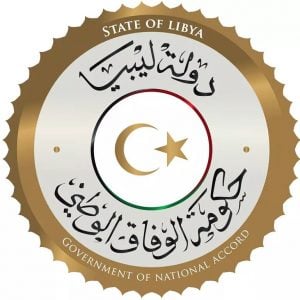By Sami Zaptia.

London, 10 September 2019:
A meeting was held in Tripoli on Monday by a committee set up by the Faiez Serraj government to look into the ongoing power and water cuts experienced by the country, but mainly in west and south Libya, and consider alternative power generation methods.
The committee, which included the chairman of the General Electricity Company of Libya (GECOL), representatives of Libya’s Renewable Energies Authority (REAoL), and board members of Libya’s Atomic Energy Authority aims to identify the causes of the frequent interruptions of the Man-made River water supply and electricity supply and to study the production of electric power by alternative methods.
During the meeting, held at the Serraj’s Prime Minister’s Office, steps needed to produce solar, atomic and wind power were discussed, during which the Atomic Energy Authority and REAoL reviewed the problems and difficulties of their energy projects.
It was agreed to continue to hold regular meetings with relevant stakeholders in order to arrive at the preparation of a proposal for the creation of an energy-producing body and to emphasize a trend of investment in energy generation.
Monday’s meeting follows on from a meeting last Wednesday headed by Serraj at his Office where he approved the ‘‘new operational plan of GECOL’’ as part of ‘‘intensive efforts to solve (Libya’s) electricity problems’’
The meeting included the head of the Audit Bureau, Serraj’s Minister of Finance, his Undersecretary of Planning, and the chairman and executive director of GECOL.
The meeting discussed GECOL’s operational plan, which was approved, and it was agreed to make available the required budget to implement it.
The plan aims to maintain Libya’s current electricity generation capacity, add 1,300 megawatts generation capacity by the end of this year, and then add another 800 megawatts by June 2020.
More realistically, the meeting discussed current development projects in the field of electricity and ways for foreign companies to return to implement these projects. GECOL also pledged a ‘‘marked improvement’’ of the electricity network starting from the next winter peak season.
Notably, the meeting made no mention of the security situation and fighting mainly around Tripoli. Previous Libyan Prime Ministers, Governments and GECOL heads – since 2011 – had always blamed the power cuts on the insecurity and fighting.
It is therefore unclear from the pronouncements out of these meetings as to what is the new solution to mitigating the insecurity and fighting problems – both of which are key to fixing Libya’s power generation infrastructure.
https://www.libyaherald.com/2017/07/24/op-ed-libyan-youth-call-for-an-immediate-renewable-energy-revolution/
https://www.libyaherald.com/2017/05/16/investment-is-the-only-effective-wat-to-promote-renewable-energy-in-libya-gecol/
https://www.libyaherald.com/2014/08/06/ministry-of-electricity-and-renewable-energy-urges-decreased-energy-consumption/
https://www.libyaherald.com/2014/05/23/ministry-of-electricity-and-renewable-energy-ready-for-summer/
https://www.libyaherald.com/2013/07/28/libya-renewable-energy-potential-huge-but-needs-billions-in-investment-electricity-minister-muhairig/
https://www.libyaherald.com/2013/07/23/renewable-energy-conference-september-tripoli/
https://www.libyaherald.com/2013/02/03/a-forum-on-renewable-energy-held-in-tripoli/
https://www.libyaherald.com/2019/04/29/germanys-giz-helps-train-young-libyans-in-renewable-energies/








